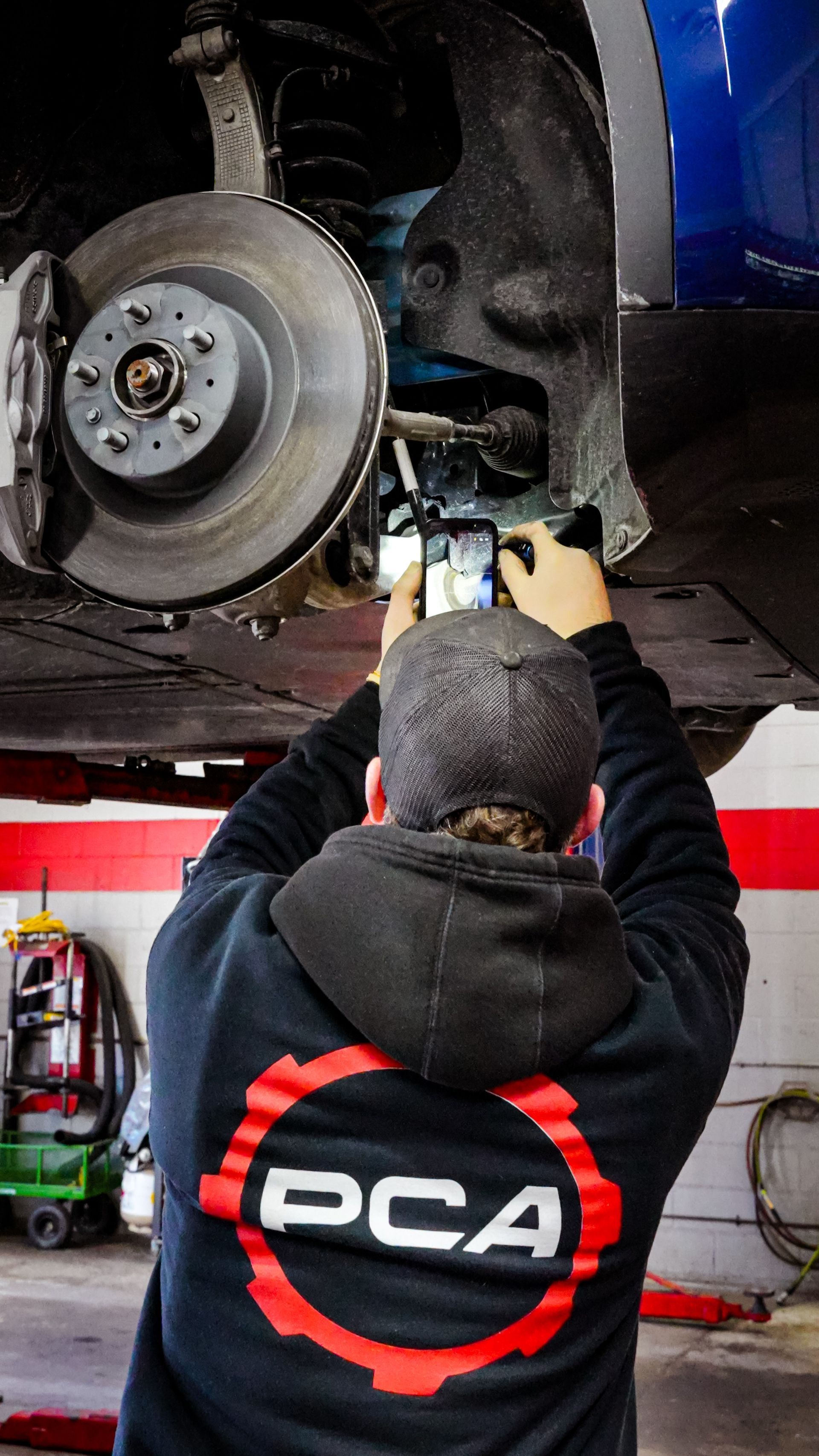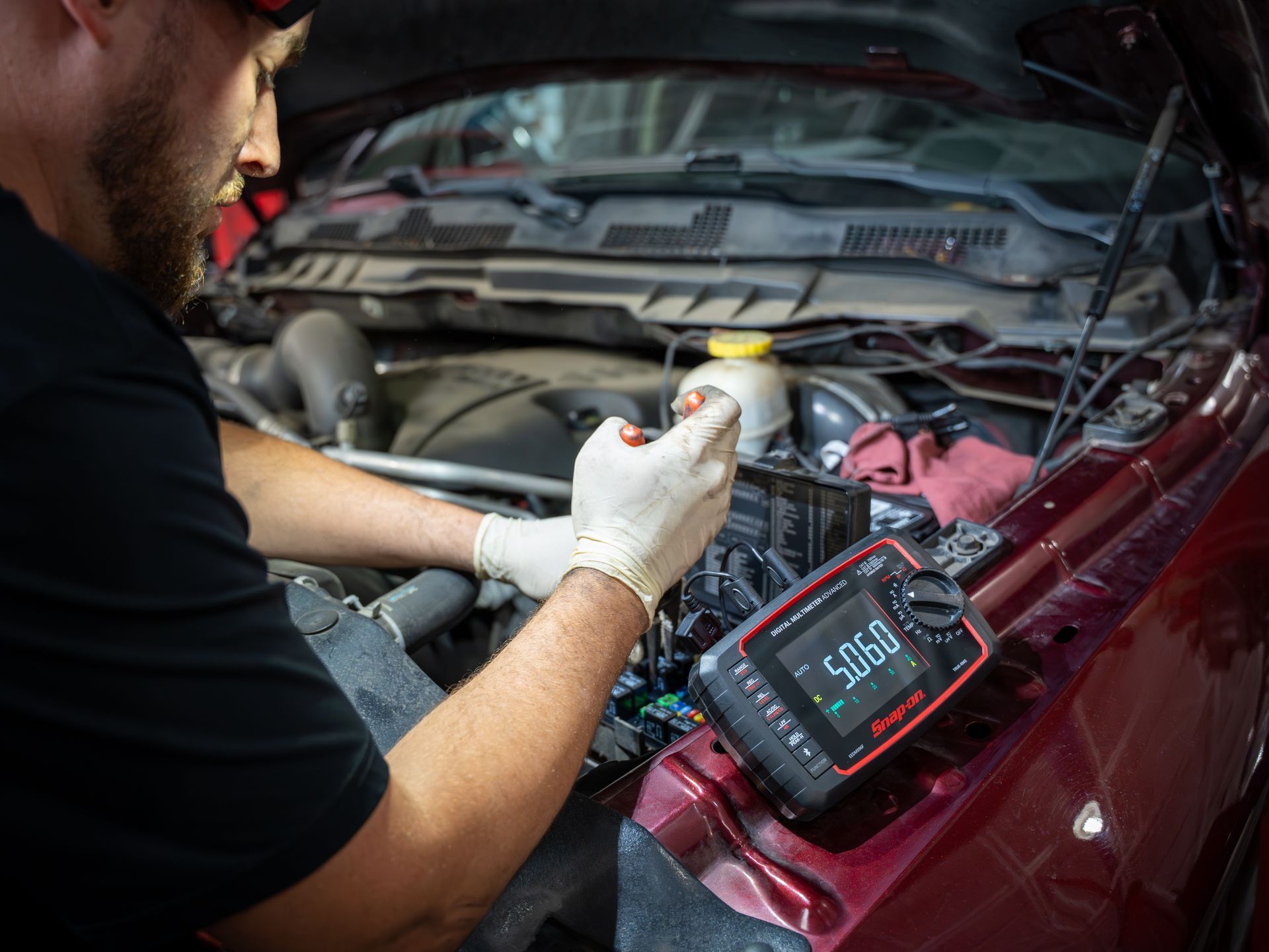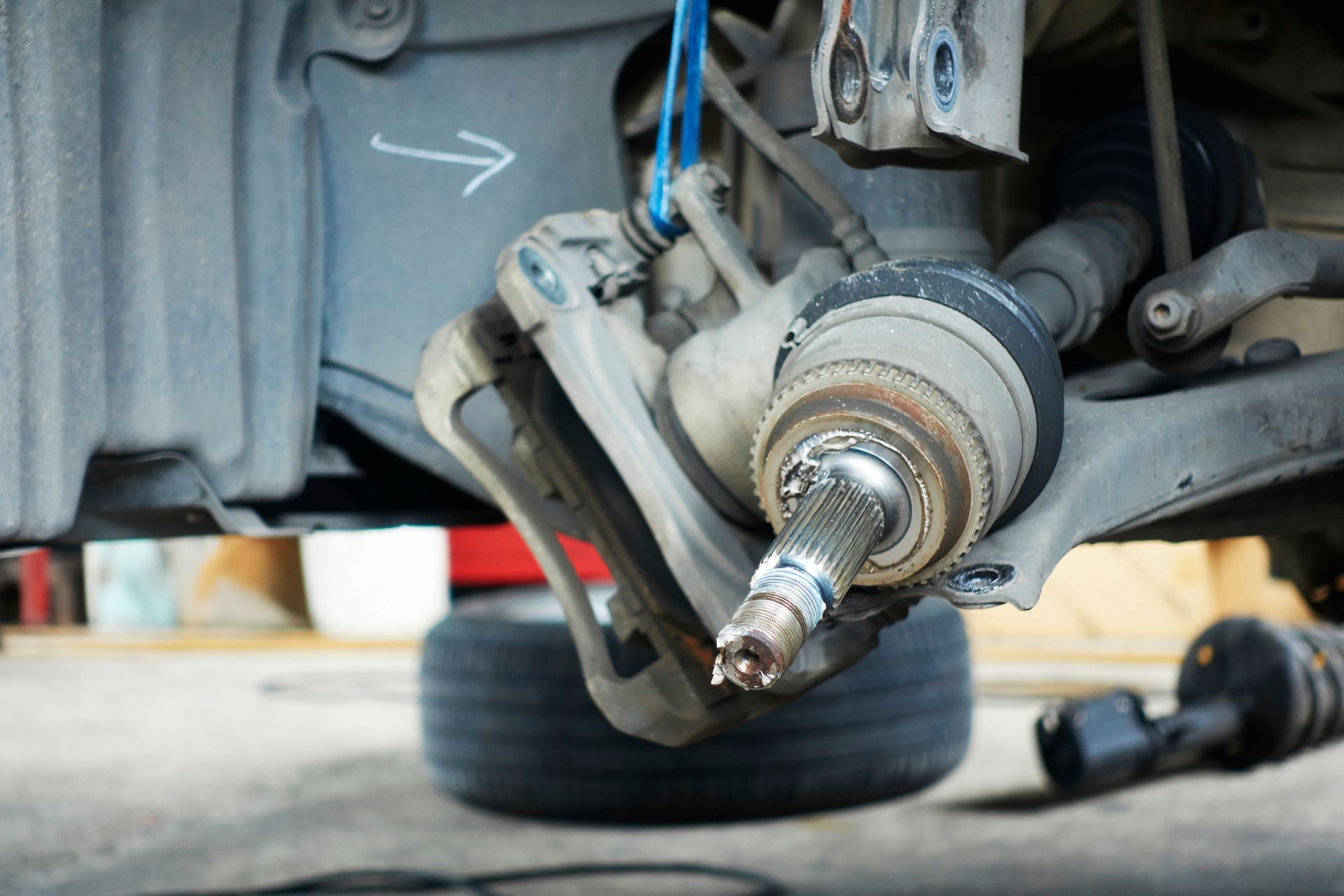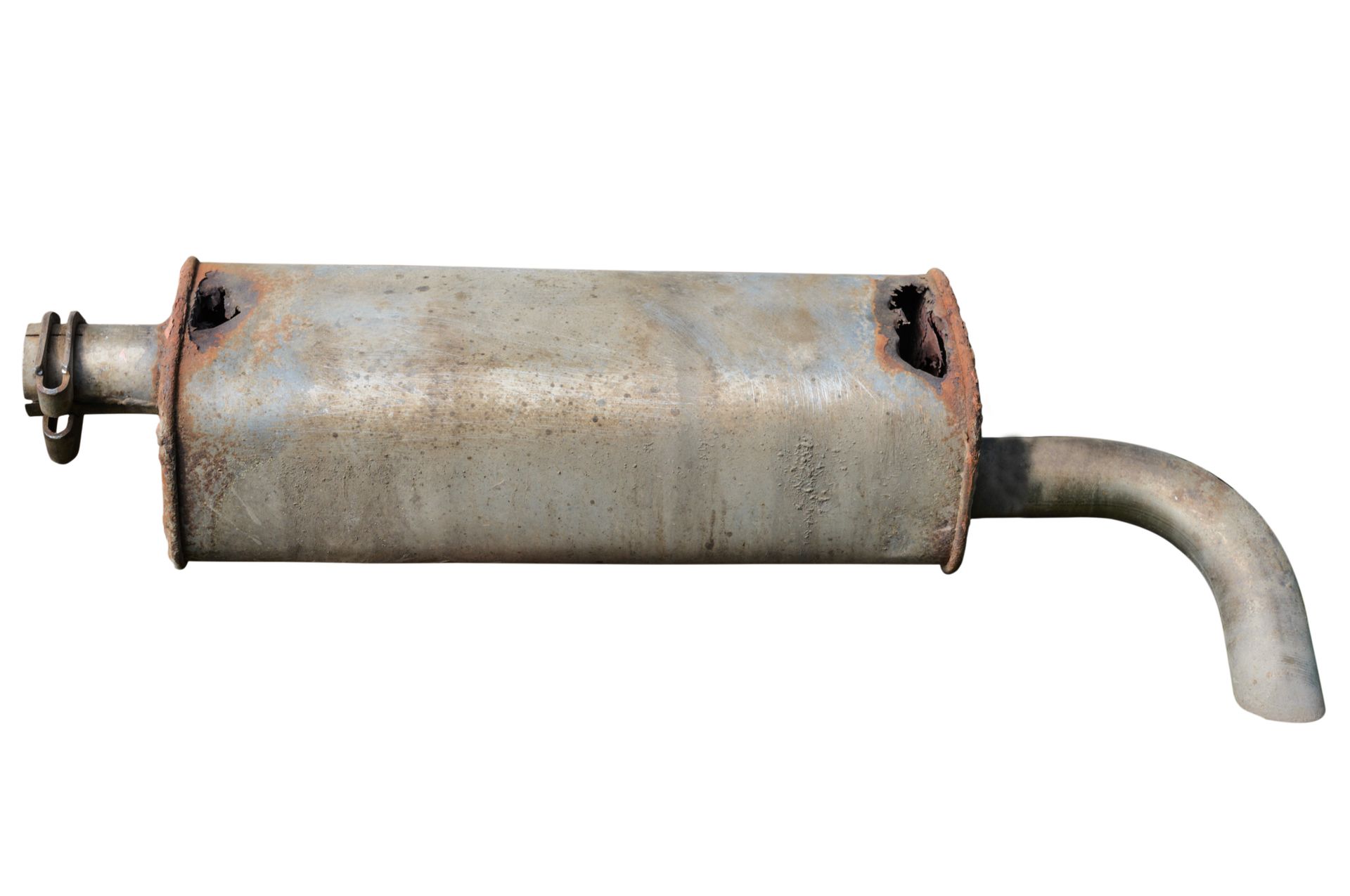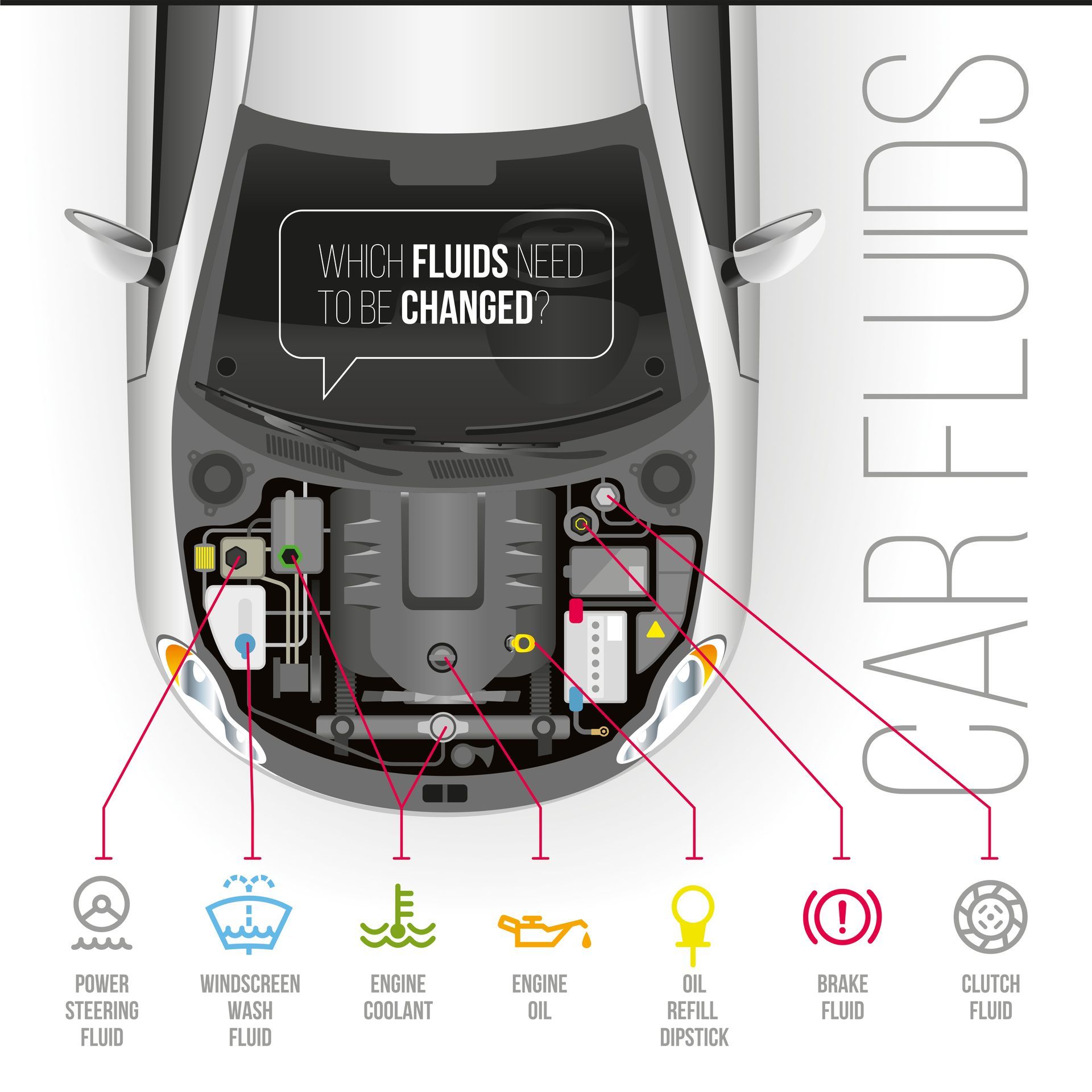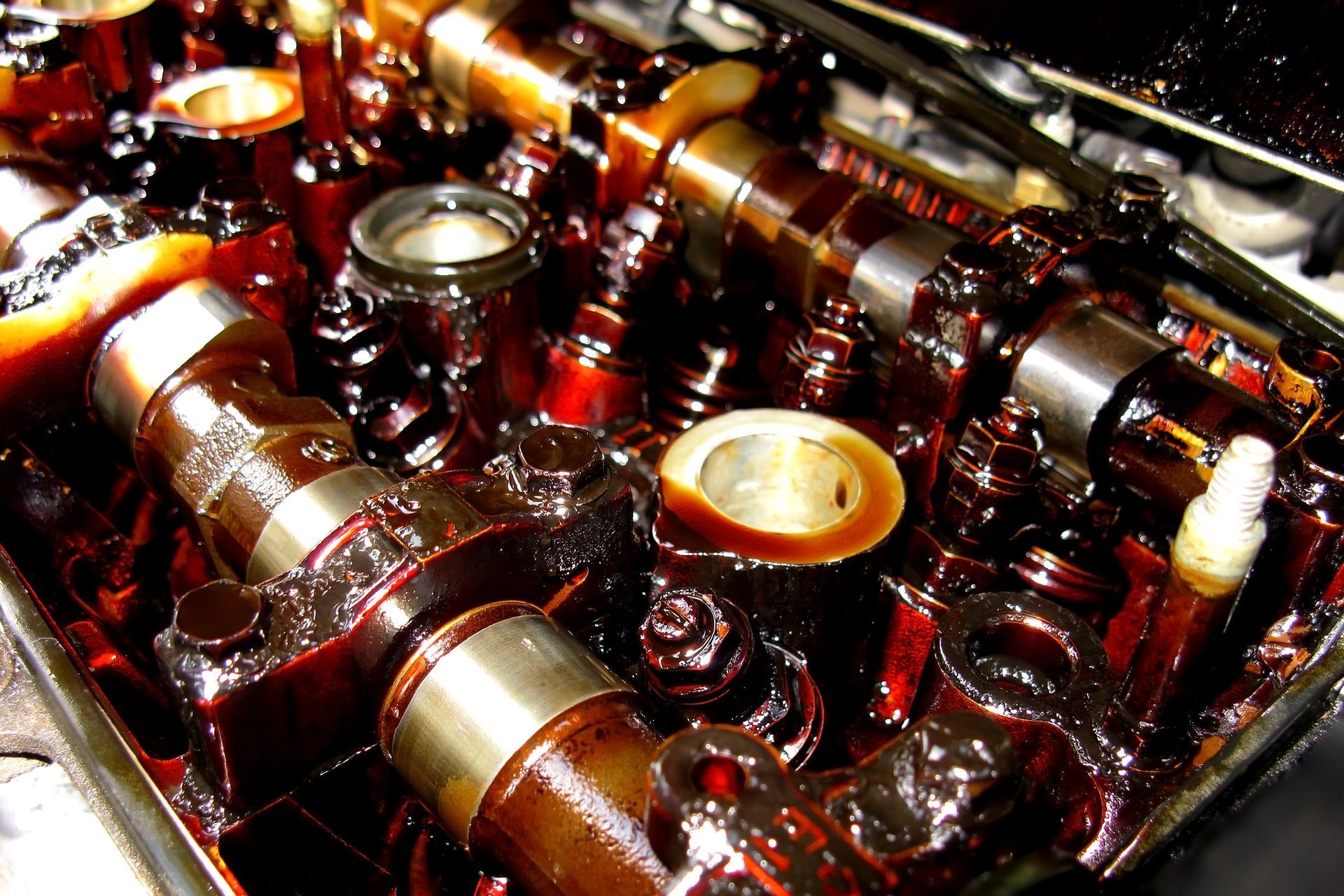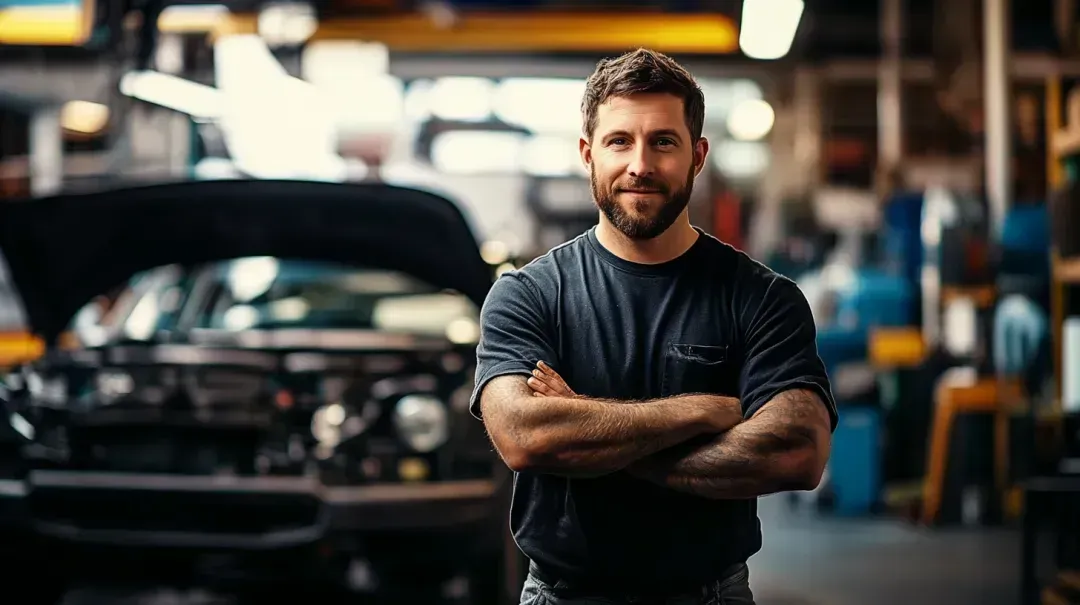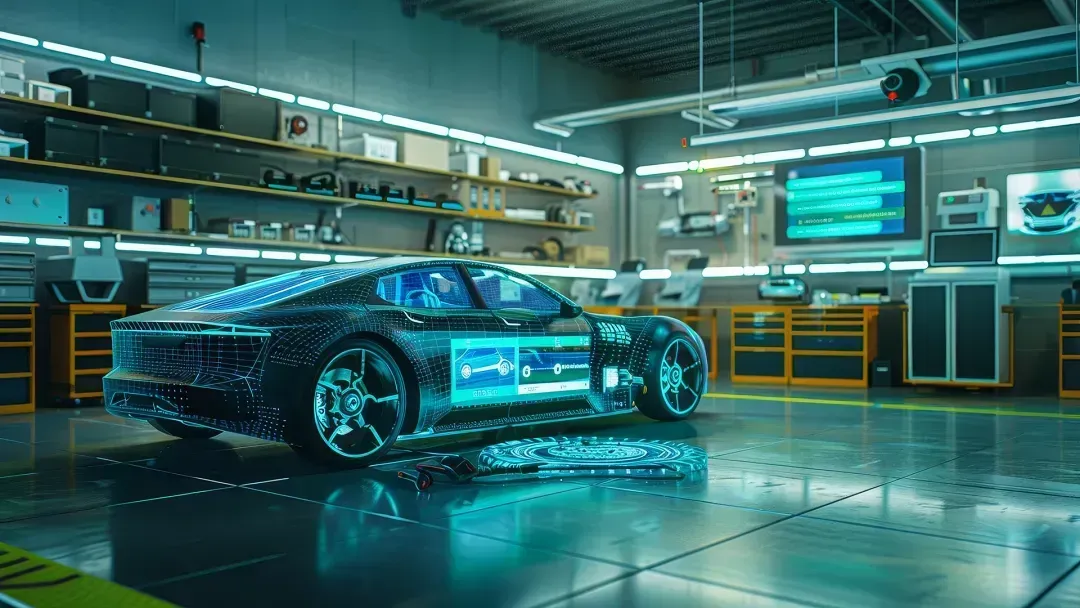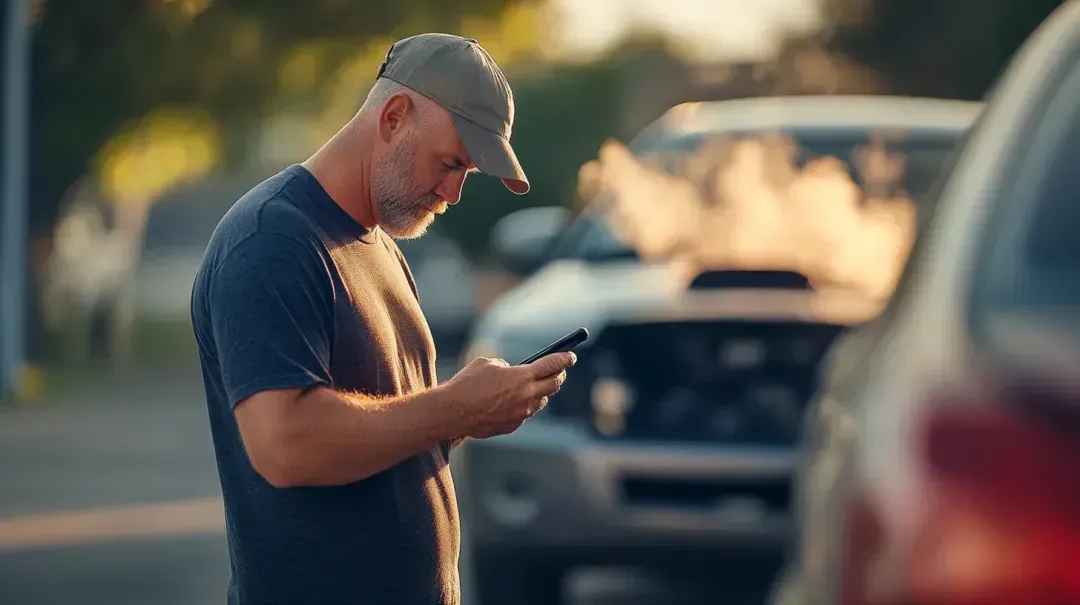When is it Time to Replace Your Brakes?
Your car brakes are what makes the difference between your safety and a tragic accident. You need to keep them in optimal shape to ensure they're working properly at all times. As they get constant use in your car, they tend to wear down more quickly than other parts in your car. Sometimes you'll be able to see or hear potential damage to your brakes, but in other instances you won't know there's a problem until it's too late. In this article, we'll break down common signs that your brakes need to be replaced and how you can keep them in pristine shape moving forward.
How Do Brakes Work?
Car brake systems are more complicated than meets the eye. They're comprised of the following parts that work together to safely bring your car to a halt:
- Brake pedal — Creates leverage to start the braking process
- Brake booster — Amplifies your foot power so you have enough force to stop the car
- Master cylinder — Converts kinetic energy from the brake booster into hydraulic pressure
- Brake lines and brake hoses — These parts form conduits from the master cylinder to the braking mechanism at the wheels
- Disc brakes — Creates friction between the brake pads and the rotor that stops the wheel
- Drum brakes — Creates friction between the brake shoes and drum to halt the wheel
All these parts work together to slowly and safely bring the car to a halt with the following process. Your foot pushes down on the pedal to put pressure on a lever that increases your pushing force. The lever pushes a piston into a cylinder to squeeze hydraulic fluid out of the end.
The fluid is pushed into another cylinder adding increased force to the piston. The piston pushes the brake pad to touch the brake disc, creating friction between the two. That friction is what slows down the wheel and tire, stopping the car altogether.
Drivers constantly push down on their car's brakes over the course of one drive. So, the braking system is subjected to constant squeezing and releasing. That pressure wears away at the pads and rotors, along with creating significant heat.
As brake pads get more worn, they don't dissipate heat as much. That causes them to wear out faster. Naturally, the more you drive, the faster this process will happen. That means you should always keep an eye and ear out for signs of brakes that need replacing. See below for eight signs that you need new brakes. These tips will help you stay ahead of potential brake problems.
8 Signs You Need New Brakes
Your car's braking system is a complex part of your car. There are a number of internal and external factors that could cause brakes to wear down. Here are some things to look out for :
- Brakes making noises — If your brakes are making any kind of noise, that is likely pointing to a larger problem. If your brakes are squeaking, that probably means that a small piece of metal that vibrates against the rotor has worn the brake pads down to a minimum thickness threshold. Typically this means you have about 2/32 of an inch of brake pad left. However, if your brakes start to make a grinding or growling noise, that most likely means they have been completely worn down.
- Reduced responsiveness — If your brakes are not responding as quickly as they should or the pedal almost appears to sink toward the floor of your car, this can be an indication of a leak in the system. This could be an air leak in the brake hose or a brake fluid leak.
- Pulling to one side or the other — If you step on the brake and feel your car being pulled to one side, that may be a sign that your brake linings are wearing unevenly or there is a foreign object in the brake fluid. If this is the case, you'll need a brake adjustment or to have the fluid drained and replaced.
- Vibration while braking — If you feel your brakes vibrating while driving, this is either a sign that your vehicle is out of alignment or that your rotors are warped. This happens after severe braking for long periods of time and creates a tremendous amount of friction, causing the rotors to heat up and subsequently warp.
- Low brake fluid levels — If the brake light on your dashboard comes on or your brakes are feeling less responsive, there's a chance your fluid levels are low. You should take your car to your local mechanic to have the fluid levels examined. If there's a leak in the system, the brake fluid will fill the space behind the caliper piston lower in the reservoir. Ask your mechanic exactly where that fluid went so you have a full understanding of the situation.
- Signs of damage in the brake pads — Sometimes you'll be able to see if something is off. If something doesn't feel or sound right, get out of your car at the next possible chance and take a look. You might be able to see signs of wear and tear in the brake pads.
- Visual inspection from mechanic — You might feel something is off with your brakes but not find any physical signs of damage. Don't doubt that instinct. Take your car to a mechanic and have them inspect your braking system. Professional mechanics have the training to spot something you might have missed.
- You've driven your car over 60,000 miles without a brake replacement — Your brake pads are supposed to last between 25,000 - 60,000 miles. The safest and most cautious driver may make it a long time on one set of pads. But if you prolong this for an extended period of time you may be putting yourself at unnecessary risk. If you're coming up on this milestone, take your car in to have the brake pads replaced. You should have your mechanic look at the overall brake system as well.
How Often You Should Replace Your Brakes and Brake Pads
There's no magic number as to when you should replace your brakes or brake pads. Unfortunately, it can be difficult to determine how often to change your brakes. However, here are some factors to take into consideration :
- The environment you live in — If you live in a high-traffic area, you'll likely be experiencing more traffic than average. That stop-and-go will wear your brakes down quicker. Living in the changing elevations of a mountainous region will do this as well
- Brake pad hardness — The type of brake pad in your car will impact how long they last. A harder pad will usually last longer, but they have to be warm before they perform well. Softer brake pads will typically do well at lower speeds but will see more damage the hotter they get.
- Driving habits — If you're constantly riding the brakes and needing to slam on the brakes, that will put more pressure on your brakes. In turn, that will cause them to wear down quicker.
- Brake pad material — The materials that make up your brake rotor and brake pad factor will impact how long the overall system lasts. Conduct proper research so you know what yours are made of.
A full brake repair is expensive. The average cost ranges from $400 - $700 , but your specific vehicle make and model, parts cost, labor fee, and necessary repairs could drive this cost up. If you're mindful of the items listed above, you could keep your costs lower or avoid a repair altogether. However, those aren't the only factors that could lead to a necessary break repair so definitely check with a trusted mechanic to make sure you aren’t waiting too long to replace your brakes.
How to Care for and Maintain Your Brakes
Whether you have brand-new brakes or have held onto the same ones for a few years, it's important to care for them so they perform at optimal levels for years to come. Here are some methods to practice to best care for and maintain your brakes:
- Follow the three-second rule — Observing this rule of the road will ensure you keep a safe distance from the cars ahead of you. The three-second rule calls for you to leave three seconds' worth of space between you and the car in front of you. For example, if the car directly in front of you passes a building on the side of the road, three seconds should elapse before you pass that same building. Observing this rule will eliminate unnecessary, sudden braking.
- Don't slam on the brakes — Treat your brakes gently. Unless you're in an emergency situation, you should always ease onto your brake pedal so that you come to a smooth and gradual stop. This will put less pressure on your brakes, allowing them to last much longer.
- Practice coasting — Before hitting the brakes, take your foot off the gas pedal. This is known as coasting. It's an efficient way to reduce your speed before coming to a complete stop. The friction from the road will naturally slow down your car without having to engage your brakes. While you're coasting, just make sure to have your foot hovering over the pedal. That way, you can quickly engage the brakes when you need to.
- Drive with one foot — Most people are taught to drive with just one foot operating the gas and brake pedals on a car with an automatic transmission (obviously if you have a manual transmission you’ll be using both feet). But if you're in the minority of people operating your car pedals with both feet, you're putting unnecessary pressure on your braking system. There's no benefit to having both feet on the pedals, so it's better to get into the habit of using one foot on either on the brake or the accelerator, so that there’s no temptation to put pressure on both pedals at the same time.
- Know the weight of your vehicle — The heavier your car is, the more pressure your brakes have to withstand. Make sure you have this information so you can understand how much pressure you can put on your brakes. You should also keep in mind that if your car is carrying an especially large load in its truck bed or trunk, you should avoid excessive hard braking.
- Physically inspect brakes regularly — Even though you’re probably not a mechanic, take the time every now and then to look at your brakes. If you see dripping fluid, or something dangling, or you detect an odd smell, take your car to your mechanic right away.
- Monitor brake fluid levels — Make sure you know where your car's brake fluid reservoir is located and keep an eye on the level marks. Monitor those levels to make sure they are where they should be. You should also always be using the type of brake fluid recommended by your car manufacturer.
- Check and bleed brake lines — Occasionally, air will get trapped in your braking system. Those air bubbles will reduce the hydraulic pressure in the system, making your brakes less effective and harder to control. Having your mechanic bleed the brake lines will remove the air inside. It's recommended to do this about every two years.
- Use the parking brake whenever you park — Using your parking brake will help reduce wear on your normal brakes and transmission, especially when parking on an incline.
- Care for your whole vehicle — If your mechanic recommends a smaller repair or service, don't put it off. Spending a little money now will help you to save big money later. The cost of a full transmission or brake replacement far outweighs the cost of a smaller service needed to keep these components running smoothly.
TL;DR — Keeping an Eye on Your Brakes Will Protect Your Family and Wallet
Your braking system is one of the most important components of your car. Good brakes can be the difference between life and death. Carefully maintaining your brakes can help you prolong their life, thus postponing the big expense of replacement.
Protect your brakes by understanding the factors that wear your braking system down quickly. Know the eight signs that your brakes might need maintenance. And, no matter how new or old your brakes are, learn to properly care for and maintain them to get optimal use out of your brakes.
The experts at Paul Campanella’s Auto & Tire Center are highly skilled mechanics who know how to fix all types of brakes . If you need your brakes fixed, or any other component of your car inspected or repaired, contact us for professional, courteous service. Book an appointment with us today!

